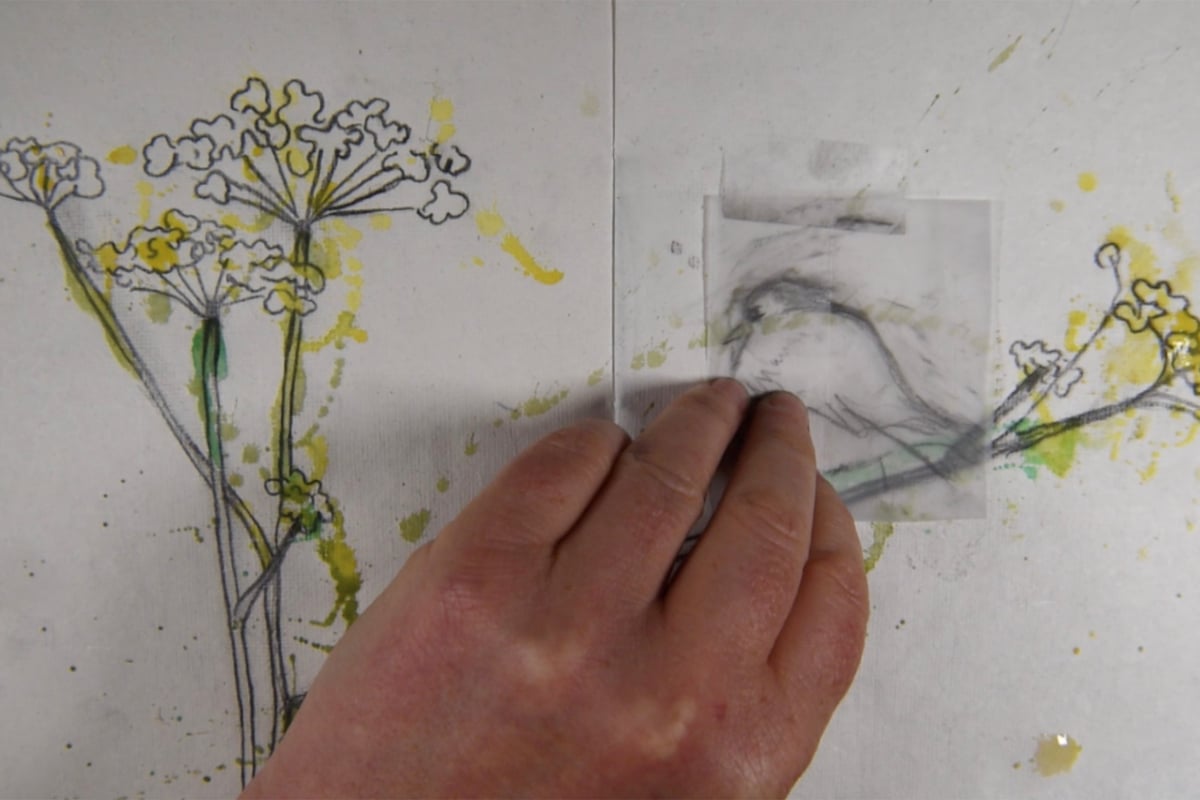
Murmuration
Photo: Kate Sweeney
Finding the words to write the climate
Poet and climate writer, Linda France shares how she is creating spaces for connection, discussion and personal reflection, encouraging us to respond to the climate emergency and see ourselves as part of the solution.
It is the writer’s task to look deeply into the heart of things and bring back what they find there. We won’t protect what we don’t love and we can’t love what we don’t understand.
Writing the Climate is a project intended to ‘not only generate new creative work in response to the issue but…interrogate the role of writers in relation to the crisis…challenge us and the wider sector to push climate change up the agenda’.
I recently completed a Creative Practice-based PhD from Newcastle University which gave me the confidence to apply a transdisciplinary methodology to this new task, grounded in my practice as a poet in the community over the past 30 years. Professor Julie Sanders, Deputy Vice-Chancellor and Provost at Newcastle University, identifies the project’s contribution as helping to ‘find the words and the stories we need for collective sense-making’ at a time of climate emergency.
The project grew out of a Climate Residency with New Writing North and Newcastle University. After the residency came to an end, Arts Council England Lottery funding enabled us to develop a whole new programme of cross-media collaborations and community-building in the face of the climate crisis. The COP26 summit, rescheduled to take place in Glasgow in November 2021, is a focus for raising awareness of the ever-shrinking deadline for reaching carbon zero.
How to cultivate a collective approach
The climate emergency is about much more than reducing carbon emissions. Early on, I identified five natural tendencies we need to cultivate to make adapting to increasing pressure and moving towards a more sustainable and equitable system manageable. They have become increasingly relevant as the pandemic has taken hold and given us a chance to break old patterns: Imagination, Optimism, Collectivity, Persistence and Kindness.
Writing the Climate harnesses all of these in its multi-stranded, participatory approach. One example is a podcast series being developed with producer Philippa Geering, In Our Element, to be aired on Resonance FM and other local radio stations in the lead up to COP26. Ten episodes examine issues such as nurturing the soil, harvesting wind energy, the carbon footprint of online life, and the benefits of intergenerational dialogue. They include interviews with poets, musicians, scientists, engineers and activists.
I explore creative ways of working collectively and the pandemic has opened up more possibilities to do this. From some 500 verses submitted in response to an open call, I curated a group poem Murmuration, which was later turned into a film by artist Kate Sweeney and shown to a live audience at Durham Book Festival. To date it has had over 12,000 views on YouTube.
Another such project, building on the success of Murmuration (and revisiting the bird metaphor), is Dawn Chorus, ‘a collective sound poem for the beginning of the world’. Working with film maker and sound artist Christo Wallers, this polyphonic piece, incorporating as many recorded contributions from the public as possible, represents a morning chorus for a planet waking up to better times.
Building a global community of climate writers
Climate Writing Workshops are also part of the schedule, with a short course How to Start Writing the Climate already attracting much interest. The Reading the Climate book group, established in 2020 continues, with four books of poetry, non-fiction and fiction, planned for the coming year. Aware that some writers are finding it hard to motivate themselves during multiple lockdowns, I instigated a Writing Hour to create a space for people to come together simply to write. Our first session drew writers from all over the world, hungry to find a supportive forum to rally their climate-related thoughts. The whole project has triggered exciting global connections.
There is clearly a great longing to be part of a wider community of writers and citizens for whom the climate crisis matters. Anna Disley, Executive Director (Programme and Impact) at New Writing North, is helping manage the project and together we are embracing an experimental, open-ended approach that is proving immensely fruitful and innovative. She has said: ‘This residency is about navigating the complexity and tangled connections of climate change, but it is also about encouraging people to see how they as individuals can act to make change, providing individual agency in the face of this enormous challenge.’
The project’s strong foundations make it possible to follow this organic, heuristic process, capable of establishing its own momentum – a model in fact of sustainable development and emergence. This energy will inform our activities into next year, post-COP26 and whatever it brings in its wake.
Environmental academic Donna Haraway has talked about the current ecological situation in terms of co-creative entanglements. This is a good analogy for the work of Writing the Climate – non-linear, interconnected, life-affirming, low-impact, diverse and inclusive. Writers bear witness to these times of enormous disruption we are living through, reflect the zeitgeist and can activate a positive approach to transformation. The process of creative change required by climate adaptation involves a leap in the dark familiar to writers – a cycle of learning, unlearning and relearning.
This crisis is part of our lives for the foreseeable future. Participating in this project is already providing a sturdy lifeline for people, an alternative to panic or paralysis, a space for truth-telling and compassion and for building creative resilience.
Linda France is Climate Writer with New Writing North and Newcastle University.
Join the Discussion
You must be logged in to post a comment.